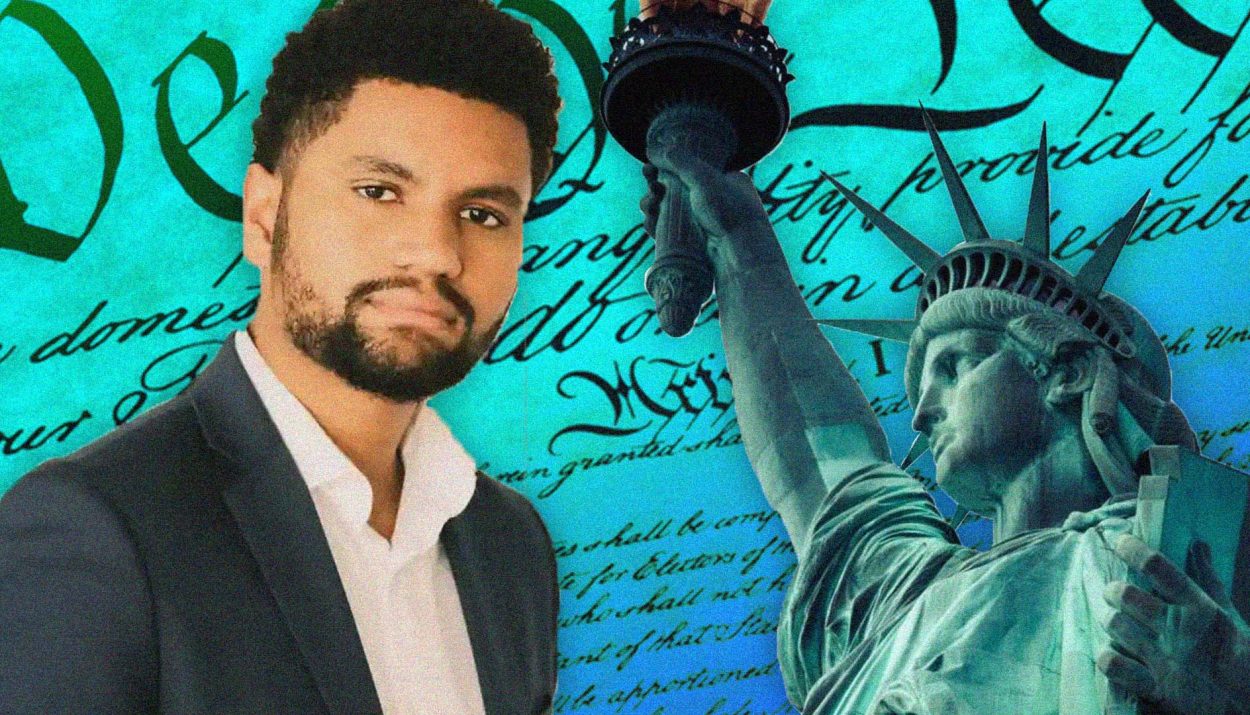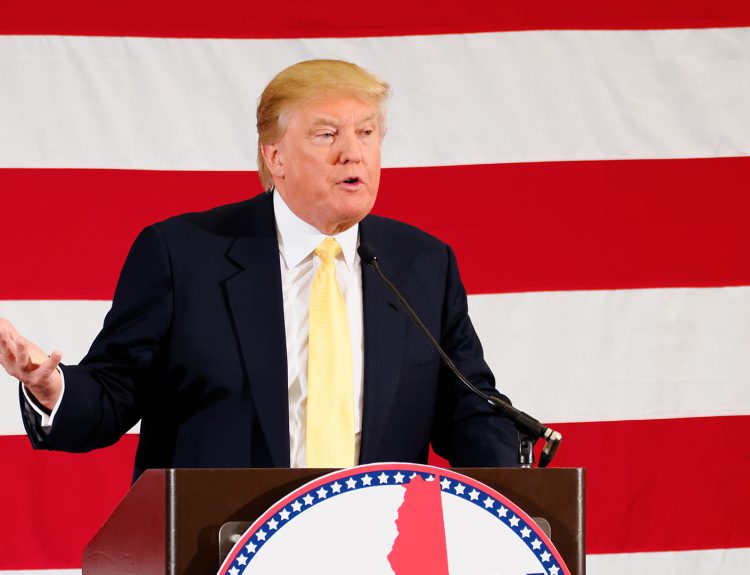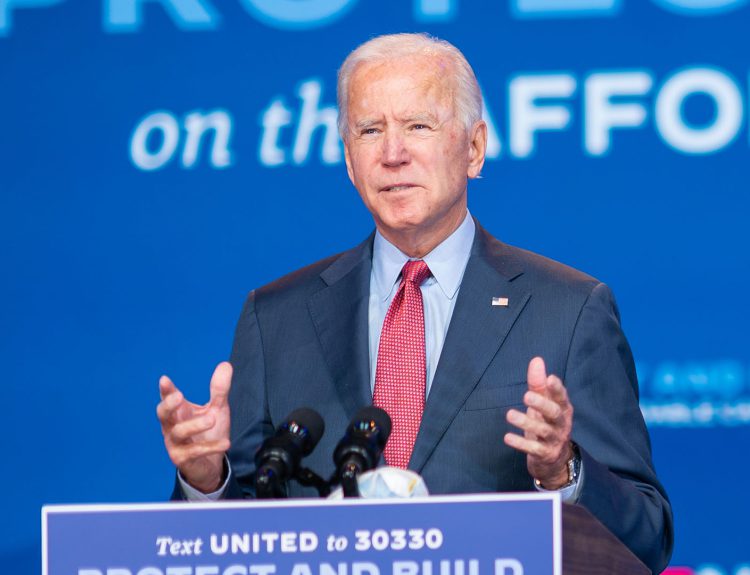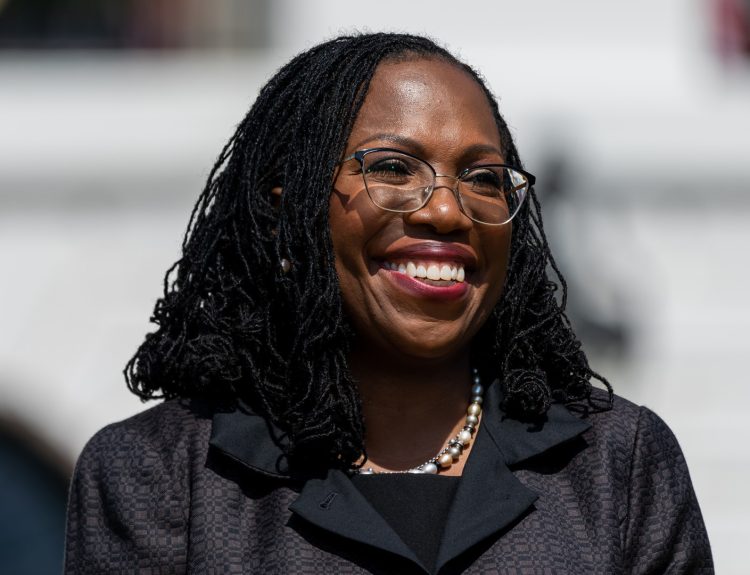The debate over immigration policy in the United States grows more contentious by the day. In a bold move sure to draw both praise and criticism, Representative Frost recently proposed removing the Statue of Liberty in response to this debate.
With over 100 years of history behind Lady Liberty’s place in New York Harbor, such a proposal disrupts deep-rooted symbols of freedom and opportunity for immigrants. As this divisive issue continues unfolding across partisan lines, a representative’s symbolic call for change sparks important discussions on the past, present, and future of the American Dream.
Drafting the Bill
Rep. Frost drafted a symbolic bill to remove the Statue of Liberty in response to the House Republicans’ sweeping immigration bill, H.R. 2. He accused the GOP of undermining the values that the statue represents by restricting asylum and legal immigration pathways.

The congressman read an excerpt from the poem on the Statue of Liberty, “The New Colossus,” which welcomes immigrants to America. He contrasted this message of inclusion with H.R. 2’s proposals. Frost challenged Republicans to be transparent about their immigration priorities. “Don’t welcome them if you plan to reject them,” he said.
Frost’s Plea for Immigrants
Congressman Maxwell Frost, a freshman Democrat from Florida, made an impassioned plea for compassion and humanity in the immigration debate. Speaking at a House Oversight Committee hearing, he called out his Republican colleagues for their harsh rhetoric and restrictive policies targeting immigrants and asylum seekers.

Specifically, Frost condemned the Republican-backed H.R. 2 bill, which would dramatically limit avenues for legal immigration and impose stricter border control measures. He accused the bill’s supporters of “peddling hate” rather than seeking real solutions.
Republican Response
The Republican party has introduced a sweeping bill, H.R. 2, to address issues at the southern border and reform the immigration system. Republicans argue this bill is necessary given the influx of migrants arriving at the border and what they see as inadequate security.
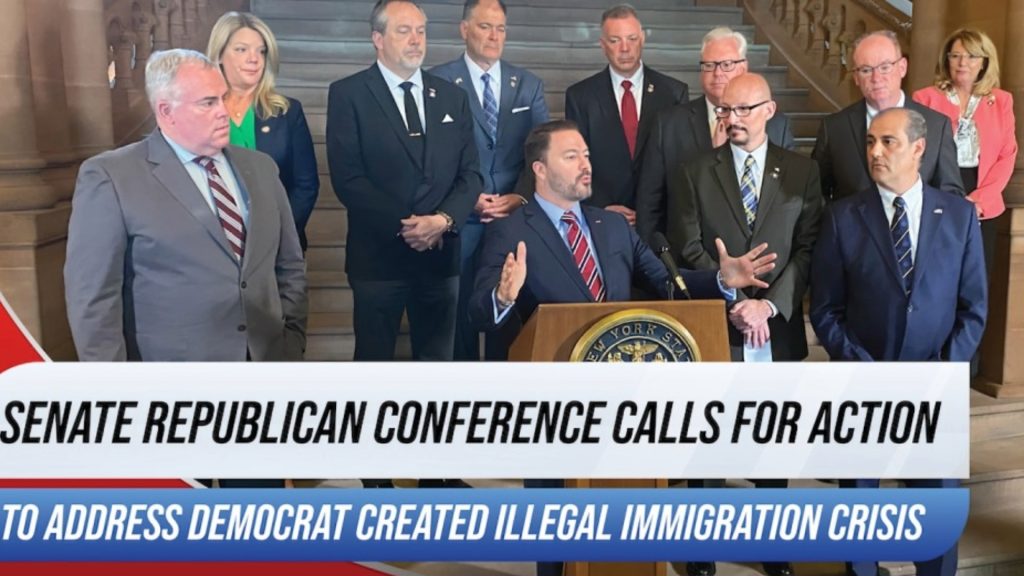
H.R. 2 aims to increase border security through more personnel, barriers, and surveillance technology. It also seeks to expedite deportations for those entering illegally. Supporters say these measures will deter migrants from making the dangerous journey and reduce human trafficking.
Different Points of Views on Similar Issues
However, Democrats oppose H.R. 2, criticizing it as anti-immigrant. Freshman Rep. Maxwell Frost argued the bill contradicts traditional American values symbolized by the Statue of Liberty. He accused Republicans of “peddling hate” instead of seeking compromise.

Republicans counter that H.R. 2 reflects priorities shared by much of the public – a 2019 Pew survey found most Americans see border security and deportations as important goals. But there are divides within parties. Conservative Republicans strongly back security and deportations, while liberal Democrats strongly support paths to legalization.
Symbolism of the Statue of Liberty
As a universal symbol of freedom and America’s promise of opportunity for immigrants, the Statue of Liberty has long stood as a welcoming beacon in New York Harbor. The statue was a gift from France, dedicated in 1886 on the centennial of American independence. Its design and inscription signify the friendship between the United States and France and the ideal of liberty shared by both nations.

The 305-foot statue holds special meaning for generations of immigrants arriving by sea in the United States. Its inscription, “Give me your tired, your poor, your huddled masses yearning to breathe free…” is the famous line from Emma Lazarus’s sonnet “The New Colossus,” which continues to resonate today.
Impact on Immigration Policy Debate
Representative Maxwell Frost’s comments and challenge to his Republican colleagues to remove the Statue of Liberty highlights the deep divisions between the two parties on immigration policy and priorities. His accusations strike at the core philosophical differences underlying the debate.

Democrats like Rep. Frost argue that providing asylum and legal pathways for undocumented immigrants, especially children, aligns with American ideals symbolized by the Statue of Liberty. They accuse Republicans of undermining immigrant rights and dignity through restrictive policies like H.R.2.
High Horse or Valid Point of View?
With midterm results yielding a divided Congress, sweeping immigration reform seems unlikely. However, Rep. Frost’s politically charged statements could further polarize the debate. His challenge for Republicans to “remove the Statue of Liberty” attempts to claim the moral high ground.

More broadly, the spat shows immigration will remain a volatile issue. Strong ideological differences within and between parties persist. Finding common ground on priorities will prove challenging. Meanwhile, record border crossings and questions about handling undocumented immigrants already in the country await action.
H.R. 2 Passage and Lack of Bipartisanship
The passage of H.R. 2 in the House of Representatives highlights the absence of bipartisan agreement on immigration policies. The bill, which aims to increase security along the southern border, passed with only Republican support. Democrats unanimously opposed the legislation.
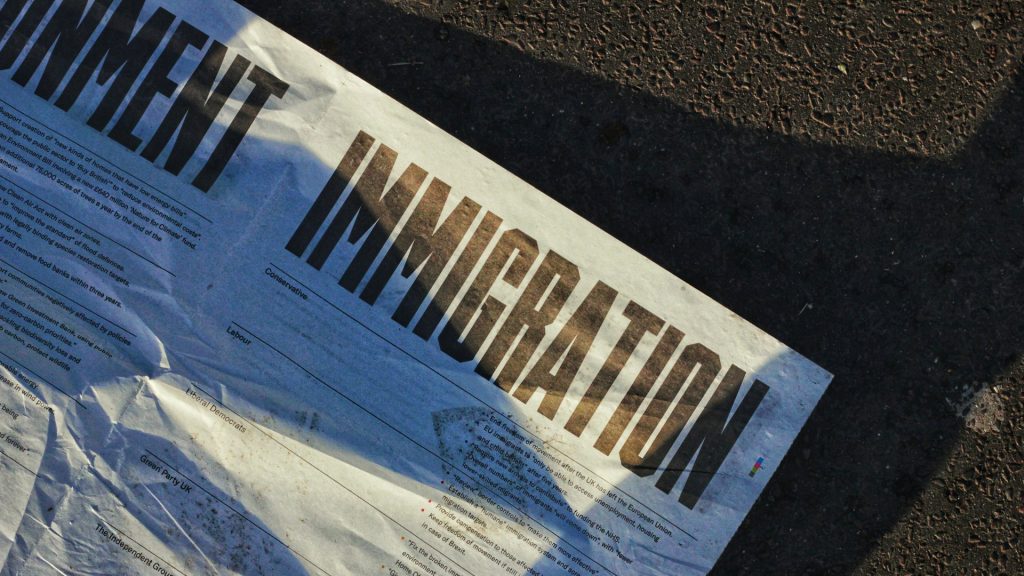
This divide reflects broader differences between the parties on immigration priorities. As highlighted in recent surveys, Republicans place great importance on border security and increasing deportations of undocumented immigrants. In contrast, Democrats prioritize paths to legal status for undocumented immigrants brought to the U.S. as children and establishing ways for most undocumented immigrants already in the country to remain legally.
Agree To Disagree
While majorities in both parties view welcoming refugees displaced by violence as an important goal, Republicans emphasize this less than Democrats. Additionally, facilitating family reunification garners more support among Democrats. Within each party coalition, more intense views come from conservative Republicans and liberal Democrats.

Moderates hold fewer extreme stances. The lack of Democratic support for H.R. 2 indicates immigration remains a highly polarizing issue, lacking bipartisan consensus. Given the wide partisan divide on priorities, finding common ground across party lines will prove challenging.
Democrats’ Immigration Priorities
Democrats place much greater importance on creating paths to legal status for immigrants who are in the country illegally compared to Republicans, according to Pew Research Center surveys.
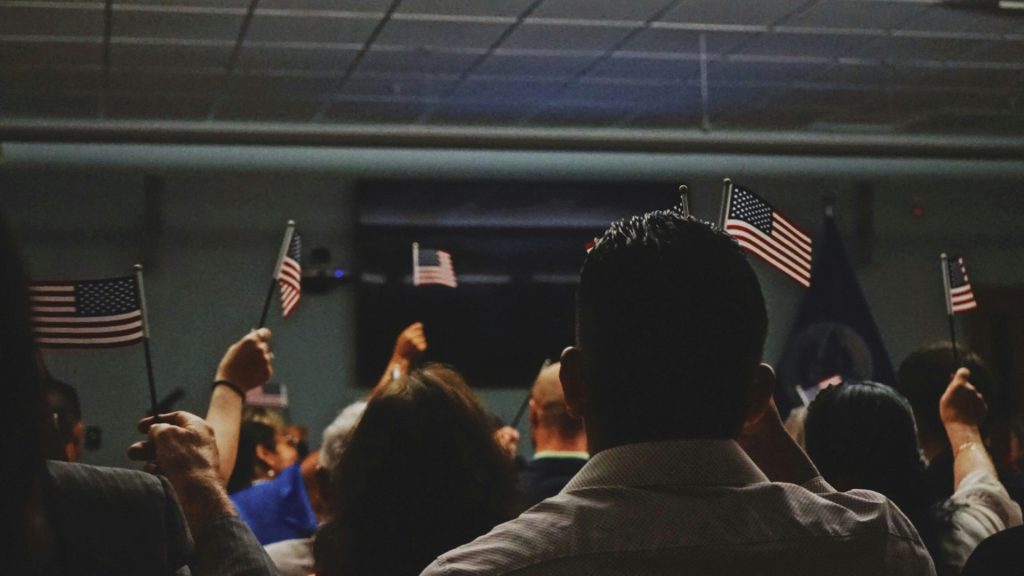
Their top priorities include:
Allowing immigrants who entered the U.S. illegally as children to remain in the country and apply for legal status. A large majority of Democrats (80%) view this as an important goal. This policy is also known as DACA (Deferred Action for Childhood Arrivals).
Establishing a pathway for most immigrants currently in the U.S. illegally to gain legal status. 80% of Democrats say this should be an important policy aim.
Making it easier for U.S. citizens and permanent residents to sponsor family members to legally immigrate to the U.S. Approximately two-thirds of Democrats support this.
It’s Not All Clear on The Blue Side
While most Democrats see increasing border security as at least somewhat important, only 22% view it as a very important priority-much lower than the 72% of Republicans who say it is very important. There are also ideological differences within the Democratic party on immigration.
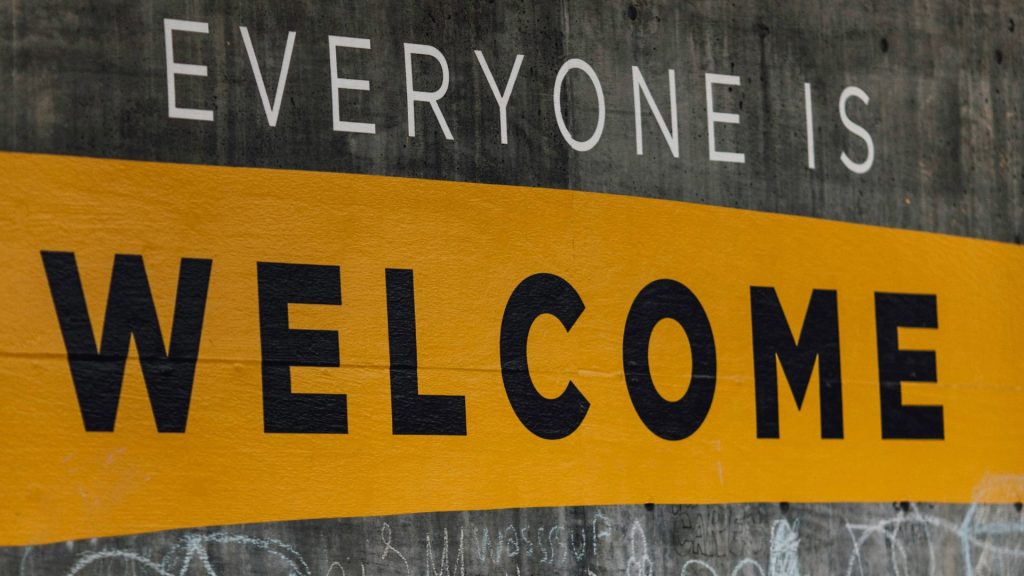
Liberal Democrats tend to place greater priority on legalization policies and taking in refugees compared to moderate and conservative Democrats. In the immigration debate, Democrats overall emphasize compassion, human rights, family reunification and providing opportunities to immigrants already in the country. Most oppose increased deportations and more restrictive policies at the border.
Legal Status for Immigrants
Democrats and Republicans have long held different priorities when it comes to immigration policy. Democrats tend to place greater importance on establishing pathways to legal status, especially for those brought to the U.S. as children. Republicans emphasize border security and enforcement.

Public support has declined in recent years for providing a route to legal status for undocumented immigrants. In 2019, 67% of Americans said this should be an important goal. That percentage has now dropped to 60% in 2022. The decrease is driven primarily by conservatives and Republicans.
Divergent Views on Deportations
Republicans and Democrats have differing perspectives on the deportations of undocumented immigrants. While Republicans emphasize border security and increased deportations as pressing priorities, Democrats place greater importance on paths to legal status, especially for those brought to the U.S. as children.

Republicans view deportations as an important immigration goal, with 79% saying increasing deportations should be a priority and 49% considering it very important. This aligns with their emphasis on border security and preventing illegal crossings.
Prioritizing Those Looking for Better Lives
In contrast, only 39% of Democrats see deportations as an important priority, with just 12% considering it very important. Democrats instead prioritize legal status for undocumented immigrants, particularly Dreamers. There is more intensity of opinion among partisan bases – 72% of conservative Republicans say deportations are very important versus 38% of liberal Democrats who feel providing legal status is very important.

So, while majorities in both parties see merits in some policies, there are substantive divides in their priorities that lead to conflicts in immigration debates. Despite some common ground, immigration remains a divisive issue. While Republicans strongly advocate for deportations and Democrats push for legal status, compromise has proven difficult with such divergent perspectives on priorities.
A Twist to The Immigration Debate
Republican Rep. Frost’s controversial proposal to remove the Statue of Liberty in response to the GOP’s restrictive immigration bill has brought intense scrutiny to the immigration debate. While likely hyperbolic, his statement underscores the deeply divisive nature of this issue.

Perhaps Rep. Frost’s bold challenge can serve as an impetus for a more thoughtful examination of the real impacts of H.R. 2 and the values America wishes to project to the world. The Statue of Liberty’s message remains as relevant as ever – but putting those ideals into practice requires rising above partisan rancor. This profound issue merits our best collective efforts.

